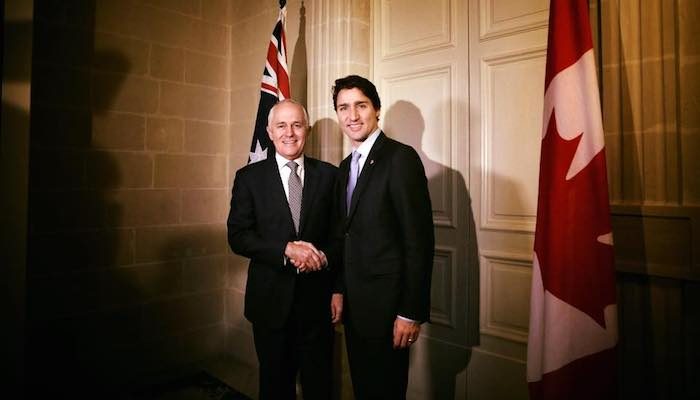- Jul 2, 2018
- 3,526
 |
MINISTER FOR FOREIGN AFFAIRS |
SECURITY CLASSIFICATION: SECRET |
| 10 November 2005 |
| Dear Minister of Foreign Affairs, I am currently in the United Kingdom on the biannual AUKMIN summit. I can say that both myself and our United Kingdom counterparts are happy to hear that Canada has re-embraced Queen Elizabeth the Second as their monarch. The situation in Canada, for too long, has been one marred by instability and a resurgent Republicanist movement. Various forces such as fascists and communists have attempted to gain political dominance in Canada for nearly a decade now. As Australia has always maintained a link to The Crown, we see stability and the same situation in Canada as paramount to our foreign policy objectives. We will commit a lot of resources and effort to ensure there is a long-term peace and stability in Canada. The relationship between Australia and Canada is one of the oldest and most valuable to Australia. In both of our nations, opinion polls have shown that Australia has been perceived the most positively by Canadians and Canada has been perceived the most positively by Australians, sometimes only ranking just behind New Zealand. This relationship is described by many as "cousins", due to the links to the British Crown. Many have described us as being the most similar with large swaths of inhospitable land, large agricultural and mining sectors, access to two oceans, a heavily urbanised population, two very powerful subdivisions in competition with each other, similar governance structure and similar social and economic policies. I would like it if on my return back from the United Kingdom that I take the long route home, via Canada, to visit yourself in Ottawa and to discuss further how we can enhance our bilateral relationship. Yours sincerely, Kevin Rudd. |
Parliament House, CANBERRA, ACT 2600 Telephone: (02) 6277 7700 |
| Protective Marking: | Business Impact Level: | Compromise of Information Confidentiality: | Required to be Encrypted: |
|---|---|---|---|
| UNOFFICIAL | No Business Impact | No damage. This information does not form part of official duty. |

|
| OFFICIAL | Low Business Impact | No or insignificant damage. This is the majority of routine information. |

|
| OFFICIAL: Sensitive | Low to Medium Business Impact | Limited damage to an individual, organisation or government generally if compromised. |

|
| PROTECTED | High Business Impact | Damage to the national interest, organisations or individuals. |

|
| SECRET | Extreme Business Impact | Serious damage to the national interest, organisations or individuals. |

|
| TOP SECRET | Catastrophic Business Impact | Exceptionally grave damage to the national interest, organisations or individuals. |

|
Nathan





